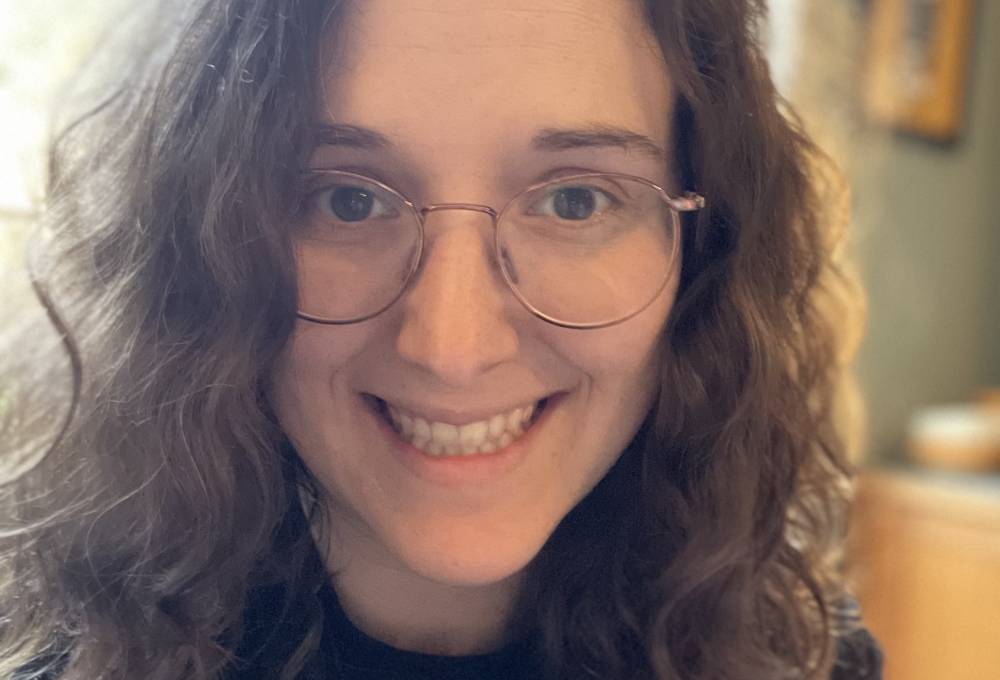Ms Stephanie Dotto

Contact
- Email: k1272595@kingston.ac.uk
- Location: Kingston School of Art, Knights Park
- Faculty: Kingston School of Art
- Department: Department of Humanities
Research project: Haunted Bodies: Resistance and Defamiliarisation in 21st Century Feminist Fabulist Fiction
Abstract
Despite fabulism abounding in the periphery of academia, there is little critical discussion as to its relevance and definition as a literary mode. Rather, it is part of a liminal discourse subsisting through blogs, podcasts, university classrooms and conferences, most likely due to its literary in-betweenness and use of the fantastic to ‘make physical what is otherwise ephemeral or ineffable' (Haggard 2018). Through this research, I will establish a critical definition of fabulism and determine what makes it such a productive mode for articulating an othered experience, particularly for women writing in the 21st century during a time of renewed antagonism against female bodies and resurrected questions of consent. This will be achieved by examining how fabulism confronts ongoing questions of biological identity and bodily autonomy and defamiliarises established genre-specific tropes to make the familiar unfamiliar.
Situated within the context of a wide international selection of fabulist authors, I hone in on the work of five female writers from varying sexual orientations, cultures and geographies who are using the fabulist mode to address the above issues: Carmen Maria Machado, Kirsty Logan, Caribbean Fragoza, Mariana Enriquez and Kelly Link. By applying a feminist interpretation of Viktor Shklovksy's defamiliarisation and Darko Suvin's theory of cognitive estrangement—building on Marleen Barr's definition of feminist fabulation as ‘an umbrella term for describing overlapping genres' (Barr 145) by contemporary feminist writers who are ‘[transforming] fiction to suit themselves' (Barr xv)—I will substantiate fabulism as a productive and performative literary mode that awakens us from automated perceptions and ‘[captures] the inherent strangeness' (Haggard 2018) of the female experience. Ultimately, the originality of my work lies in my intention to establish fabulism as an effectual response to a growing social and political denial over a woman's bodily autonomy, evidencing the ways in which female bodies are both contested and contestable.
- Research degree: PhD
- Title of project: Haunted Bodies: Resistance and Defamiliarisation in 21st Century Feminist Fabulist Fiction
- Research supervisor: Dr Nicholas Foxton
- Other research supervisors:
Biography
I am an American writer and researcher with a keen interest in fabulism, folklore and issues of gender in modern-day fairy tales.
I did my undergraduate and postgraduate degrees in Creative Writing, first at California State University Northridge in Los Angeles and then at Kingston University where I received my MFA. During that time, I published several short stories and poems and produced a large chunk of my novel, which I am currently finishing. I have always drawn inspiration from folklore, often blurring the boundaries between reality and the inherently strange as a means of making sense of a changing world.
Now, I'm am thrilled to be embarking on my PhD at Kingston University, focusing on female identity politics and fabulist writing as a means of exploding the masculine narrative of what it means to live in a woman's body.
Areas of research interest
- Fabulist fiction
- Feminist theory
- Viktor Shklovsky's defamiliarisation
- Darko Suvin's cognitive estrangement
- Short stories
- Composite novels
- Fairy tale and myth
- Magical realism
- The gothic
- intertextuality
Qualifications
- MFA in Creative Writing (Distinction), Kingston University
- BA in Creative Writing, California State University Northridge
Publications
-
‘Ekstasis'. A Void: Issue 2. London: Morbid Books, 2018. Print.
-
‘The Songs We Play in Bedrooms'. Words, Pauses, Noises: Anthology Volume One. London: Kingston University Press, 2014. Print.
-
‘Mechanical Sheep'. London: 2013. Words, Pauses, Noises. Web.
-
‘The Substance of Shadows'. The Northridge Review. Los Angeles, 2012. Print.